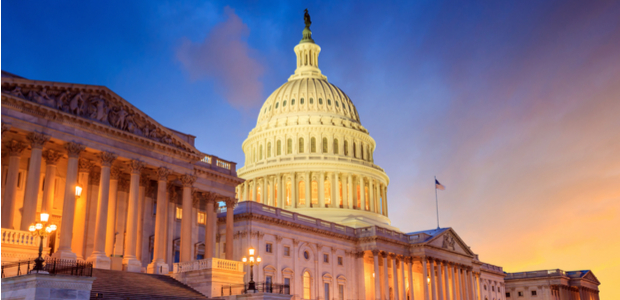Some movement in the Senate on funding, but concerns remain
The Senate is moving ahead on a package of funding bills with bipartisan support, but spending levels for homeland security and defense continue dog lawmakers, with a shutdown still a possibility.

The Senate voted late Tuesday afternoon to begin moving a package of four appropriations bills covering domestic spending that includes funding for the Departments of Agriculture, Interior, Commerce, Justice, Transportation, Housing and Urban Development and the Environmental Protection Agency.
The plan is to push the four appropriations bills, covering $214 billion in spending, as a substitute amendment to a House-passed appropriations bill to get those departments funded for fiscal year 2020.
Majority Leader Mitch McConnell (R-Ky.) said after that package passes, the Senate would look to move the Defense appropriation along with the bill funding the Departments of Health and Human Services, Labor and Education.
"Hopefully the ice is breaking on the Democratic side with regard to obstructing appropriation bills that we all agreed to move several months ago, so that's a hopeful sign," McConnell said at a weekly press briefing.
The government is currently being funded by a continuing resolution that expires Nov. 21. If that continuing resolution expires before all the funding bills are passed or without another stopgap bill, a partial shutdown would ensue.
Despite signs of progress on the Senate floor, lawmakers remain deadlocked on funding levels in several areas including Homeland Security. The $5 billion in proposed funding for a wall along the southern border is a particular sticking point, as are moves to backfill some reprogrammed defense and military construction funding already diverted to the wall project.
At issue are the committee level allocations that divide agreed-upon funding levels into the 12 traditional appropriations buckets. While the Senate is moving on some of its committee-passed appropriations, disagreement remains on the allocations – known as 302(b) in legislative jargon – which could gum up the works for lawmakers as they look to close out funding bills.
House Majority Leader Steny Hoyer (D-Md.) told reporters Tuesday morning that lawmakers are in "an unacceptable position" when it comes to advancing on appropriations.
"I would urge all Republican leadership in the Senate and the House to help us get to an agreement that will have to be a bipartisan agreement, will have to be give and take," Hoyer said. He added later in the press conference that he was not "pessimistic" about the process.
On the Senate floor, Minority Leader Chuck Schumer (D-N.Y.) backed the idea of a bicameral, bipartisan conference to arrive at 302(b) funding levels across the House and Senate.
"If Republicans are willing to engage with us on 302(b)s, we get negotiations back on track to fund the government," Schumer said.
NEXT STORY: Quick Hits






